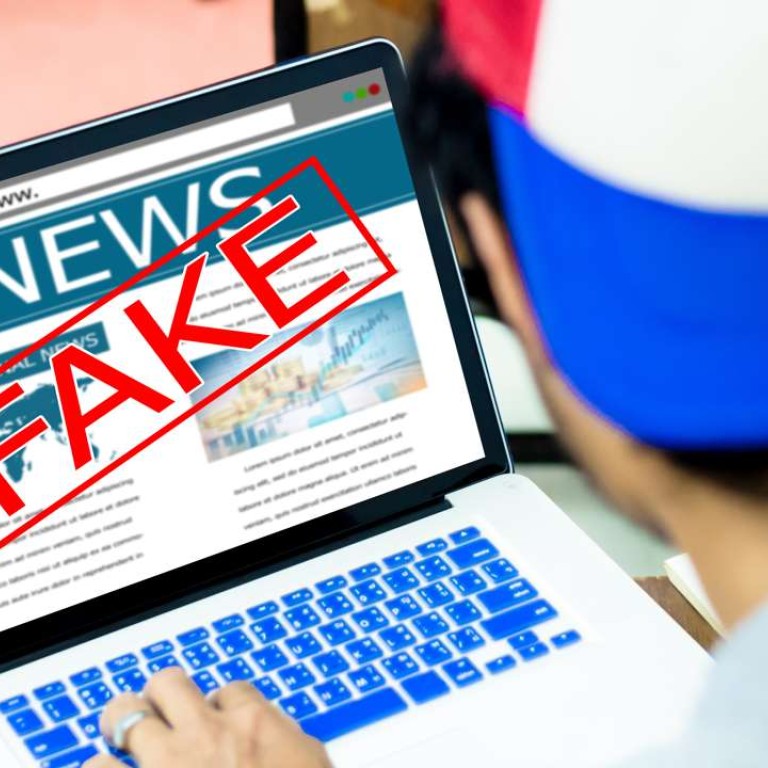
True or false? How Google and Facebook are cranking up the fake news fight
Expanded fact-check tags in searches and tips on how to spot fictitious reports are new tools aimed at ensuring web users are not fed inaccurate or misleading information
Two major online platforms are stepping up their fact-checking measures to combat the proliferation of fake news.
Google will expand the use of “fact check” tags in its search results – something already introduced in the US and the UK last October – while Facebook is launching a feature to help users spot false news and misleading information that spreads on its service.
People who search for a topic in Google’s main search engine or the Google News section will soon see a conclusion such as “mostly true” or “false” next to stories that have been fact checked.
Google has been working with more than 100 news organisations and fact-checking groups, including The Associated Press, the BBC and NPR. Their conclusions will appear in search results as long as they meet certain formatting criteria for automation.
Google said only a few of those organisations, including PolitiFact and Snopes.com, have already met those requirements; The Washington Post also says it complies. Google said it expects the ranks of compliant organisation to grow following this month’s announcement.
Not all news stories will be fact checked. Multiple organisation may reach different conclusions; Google will show those separately.

Meanwhile, Facebook will introduce something similar to previous efforts around privacy and security that is basically a notification that pops up for a few days. Clicking on it takes you to tips and other information on how to spot false news and what to do about it.
Tips to spot false news include looking closely at website addresses to see if they are trying to spoof real news sites, and checking websites’ “about” sections for more information. Some sites might look like real news at first glance, but their “about” sections inform the visitor that they are, in fact, satire.
Adam Mosseri, vice-president of News Feed at Facebook, said he hopes people will become “more discerning consumers” of news.
The new feature is part of a broader plan by Facebook to clamp down on false news stories, which gained outsized attention in the months leading up to the 2016 U.S. presidential election.

She praised the company for seeking help from outside experts, including academics, researchers and non-profit journalism organisations.
The company, for instance, is working with outside fact-checking and media organisations to identify false news as such. And once they are identified, Facebook is trying to dry up the “economic incentives” of false news sites by making it difficult for them to buy ads on Facebook.
Mosseri said most of the false news content on Facebook is from spammers trying to seek a profit and not, for example, political propaganda. This is apparent as the sites often flip-flop around opposing political candidates or ideologies, for example, or have multiple pages that support different candidates.

The new feature will be available in 14 countries, including the US, Germany, France, Italy, the UK, Philippines, Taiwan and Brazil.
With the Google initiative, it is unclear whether these fact-check analyses will sway people who are already prone to believe false reports because they confirm preconceived notions.
Glenn Kessler, who writes “The Fact Checker” column at The Washington Post, said in an email that Google’s efforts should at least “make it easier for people around the world to obtain information that counters the spin by politicians and political advocacy groups, as well as purveyors of ‘fake news’.”
He added that “over time, I expect that people increasingly will want to read a fact-check on a controversial issue or statement, even if the report conflicts with their political leanings.”
Fact check tags are expected to be available to the rest of the world and to all languages soon.

